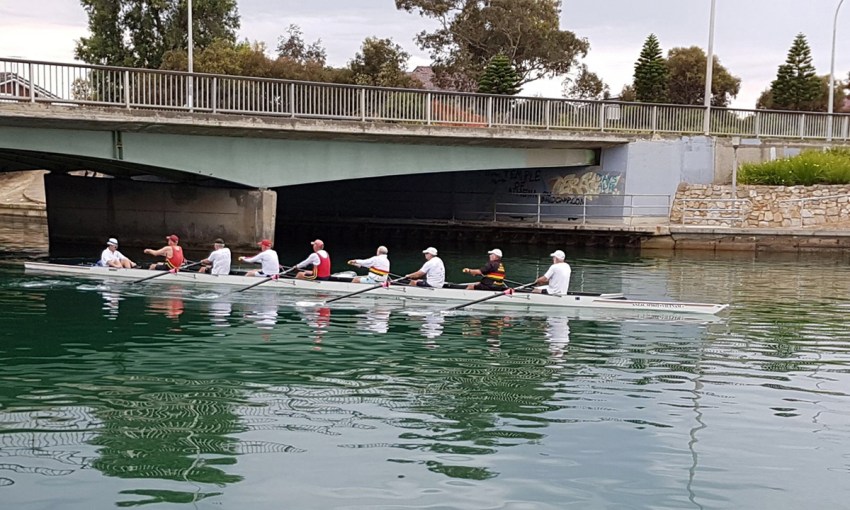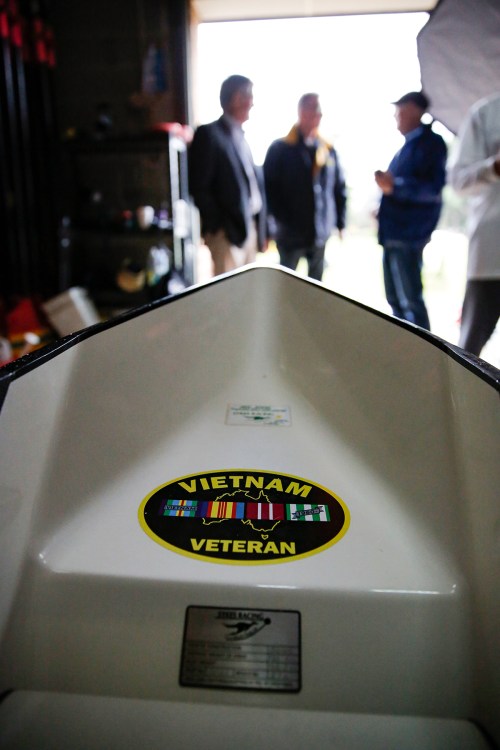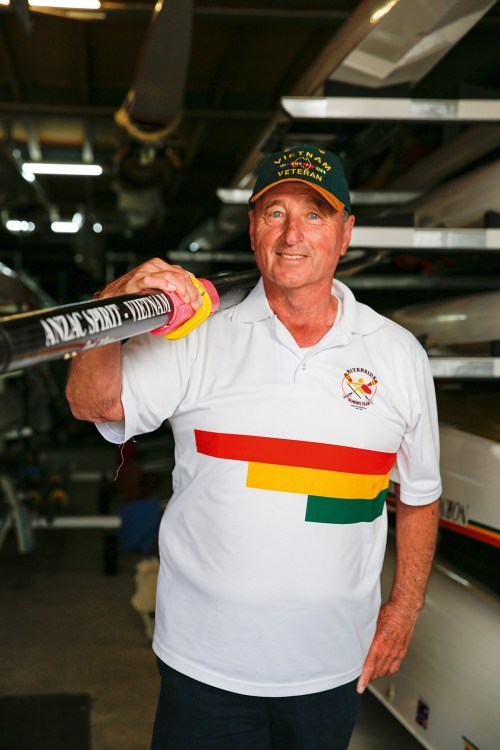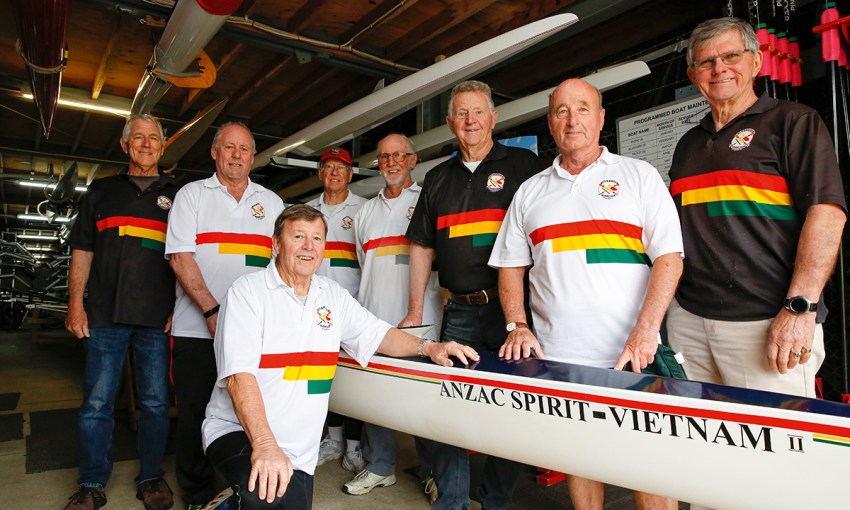Nearly 50 years since Australia pulled its troops out of the Vietnam War, many diggers are still fighting their own battles. But, out on the water, these veterans are winning.
Veterans find peace on the water
Aburst of laughter erupts from a table of amiable blokes chatting at a cafe overlooking the water at West Lakes. The group of spritely grandfathers and retirees are debriefing over coffee after a morning session out on the water.
It’s one of three weekly training sessions, including an off-water gym workout, that the team uses to keep fit year-round in preparedness for big annual events such as the eight-kilometre Head of the Yarra.
But this is not your everyday rowing group. As young men, each member served during the Vietnam War and returned home in the 1970s to restart their lives in a society that did not warmly embrace veterans.
The Vietnam and War Veterans Rowing and Recreational Club was founded in 1998 and is still going strong today. Although they didn’t cross paths in Vietnam, it seems as if the rowers have known each other for their entire lives.
At 69, club president David Wheare is the youngest of the group, with ages ranging up to the mid-70s. But they’re not even the oldest ones around the boatsheds.
“We’re only young fellas,” says David. “There’s one crew here called the Over Bloody Eighties and they’re still rowing!”
The veterans’ eight-person rowing boat is proudly named Anzac Spirit — Vietnam and was purchased through grant funding and many hours of fundraising.
“Rowing with eight people in a boat, all in sync and in balance, is hard to achieve. It’s the ultimate teamwork sport and it takes some doing,” says David.

Many of the veterans have experienced Post-Traumatic Stress Disorder (PTSD) which commonly presents later in life, and each felt isolated with their own physical and mental health struggles before discovering the group.
“For 30 or 40 years we were isolated,” says David. “Many of us had similar experiences with PTSD, but at different times in our lives. For some it hit early, but it’s often later on in life when it presents. Your socialising drops off and you lose interest in things you used to be into.”
The former soldiers find they can talk about things more easily with fellow veterans. “We’ve had some people over the years who are really suffering, but they do change. It’s about keeping your mind alert and active, staying positive and socialising. Physical exercise and mental health go hand-in-glove – you’ve got to be fit to feel good,” says David.
Rowing has had a transformative effect on new members who had previously been inactive. “A year or two later, the benefits to people’s fitness and health have been quite amazing. Rowing is the perfect sport. It’s very good aerobically and exercises virtually every muscle in the body, but without the impact.”

Humour is the glue that binds the team. Female rowers and wives sometimes join in to form a mixed crew, and they share in the jokes.
“It’s a bit of a strange version of military humour. Civilians might wonder what the hell we’re on about with some of the banter that goes on. Many stories are best kept in the boat,” David says.
Members cover a large spectrum of service over the years of Vietnam, and across different Corps. There is a mix of “regs” – regular soldiers who enlisted – and national servicemen who were conscripted. The rowing group warmly embraces new members, including veterans from other conflicts. David was 17 when he joined the army, looking for adventure.
“Most of my mates were being sent to Vietnam and I said to my officer that I wanted to volunteer. He told me to come back when I was 19, so I did,” David says.
Three weeks after his 19th birthday in 1970, David was on the ground in Vietnam. “Nothing can describe it. You land in a warzone and it’s a very different world, and nothing they’ve trained you for actually prepares you for that.”

David served in the 8 Petroleum Platoon and was in Vietnam for one year. “It was a mechanised war and it all ran on fuel. It was a very sophisticated system of fuelling tanks, armoured personnel carriers, helicopters, and aircraft,” he says.
After many of them were cut loose from the Army in the early ’70s, they had to integrate into a society that didn’t embrace veterans and they were often pressured to hide the fact that they served in the war. It wasn’t until 1987 that Australia officially recognised Vietnam Veterans in the form of a Welcome Home Parade.
The veterans have found a sense of belonging through roles with the team and rowing clubs. “Noel has been our fitness guy taking a gym session every Monday, Mal has been our technical guy…” David says, to which another rower chimes in, “Bruce is just the brains of the outfit,” to more laughs from the group.
“That’s why we never win a race.”
This story first appeared in the November 2020 issue of SALIFE magazine.



